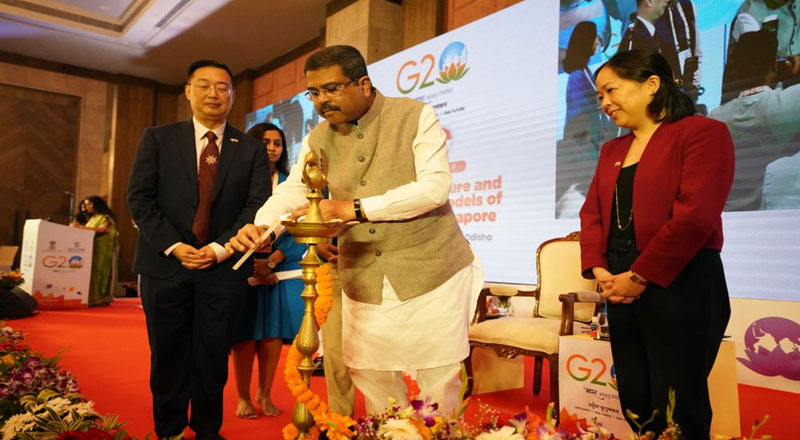Union Education and Skill Development and Entrepreneurship Minister Shri Dharmendra Pradhan addressed the workshop on Future of Work: Skill Architecture and Governance Models of India and Singapore in Bhubaneswar today. HE Mr. Simon Wong, High Commissioner of the Republic of Singapore to India; Ms. Melissa Khoo, Deputy Secretary (Higher Education and Skills, Ministry of Education Singapore were part of the plenary session. Secretary, Higher Education, Shri K. Sanjay Murthy: Secretary, Skill Development & Entrepreneurship Shri Atul Kumar Tiwari ; Secretary , School Education and Literacy Shri Sanjay Kumar and senior officials of Ministry of Education and Skill Development & Entrepreneurship attended the workshop.
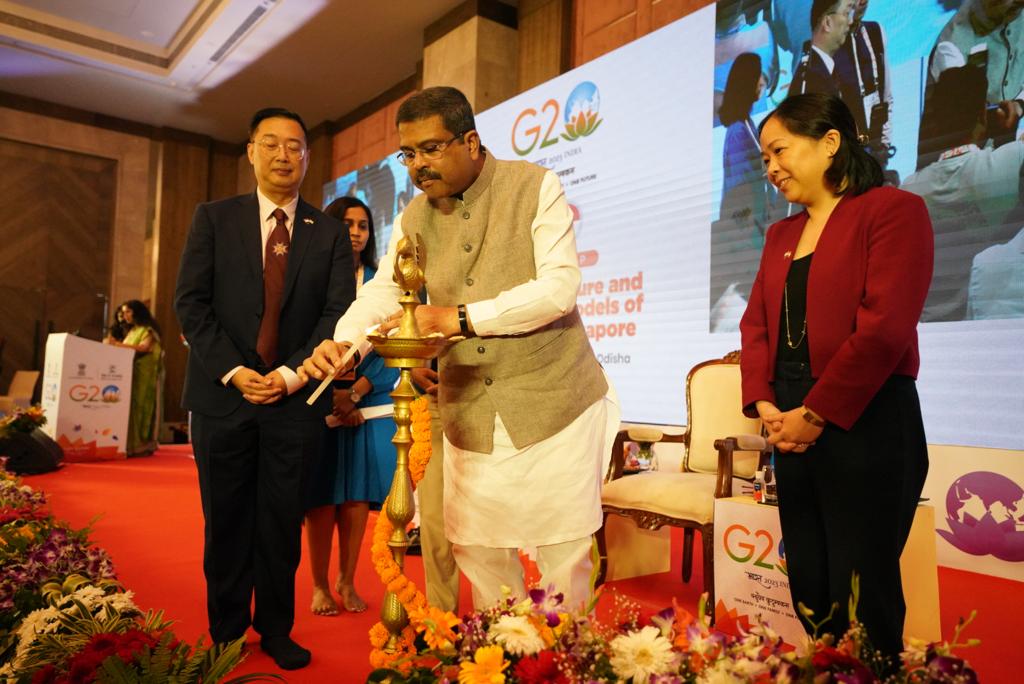
Speaking on the occasion Shri Pradhan expressed his pleasure to be present among the delegation of India and Singapore, stakeholders of skill ecosystem, educationists and students at the day-long workshop on being organised on the sidelines of the G20 3rd EDWG meeting.
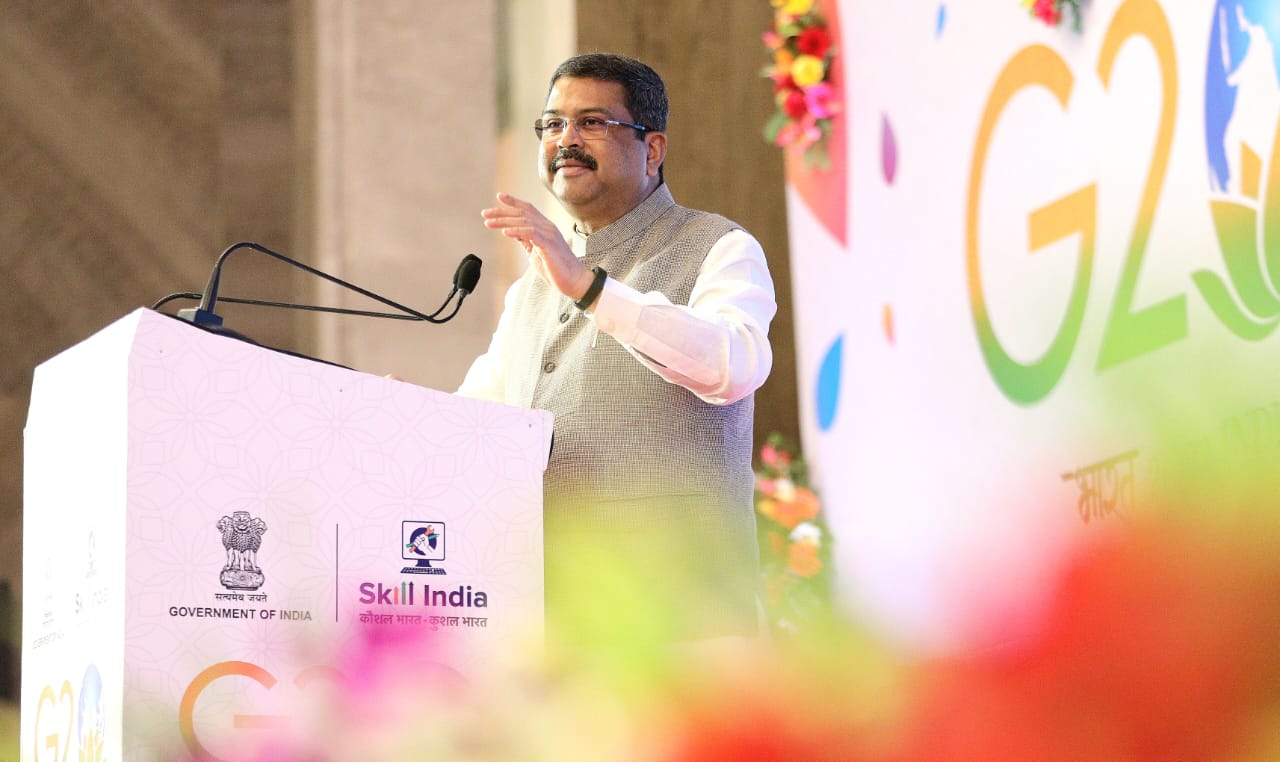
The Minister said that Skills development and knowledge collaboration is an important element of the Strategic Partnership. There is immense scope for both India and Singapore to work together to achieve mutual priorities, particularly towards preparing a future-ready workforce. We have to redefine and reimagine skilling, he added. H further said that Skilling is lifelong. In the next quarter century, 25% of the global working population will come from India. Until and unless we skill, re-skill and up-skill our young demography and prepare them for Future of Work, we cannot fulfil global responsibilities, he added.
Shri Pradhan highlighted NEP 2020 envisioned under the leadership of Prime Minister Shri Narendra Modi has placed equal importance on education and skilling. It has paved the way for integration of schooling and skilling, horizontal & vertical mobility through National Credit Framework and redefining India’s skills ecosystem.
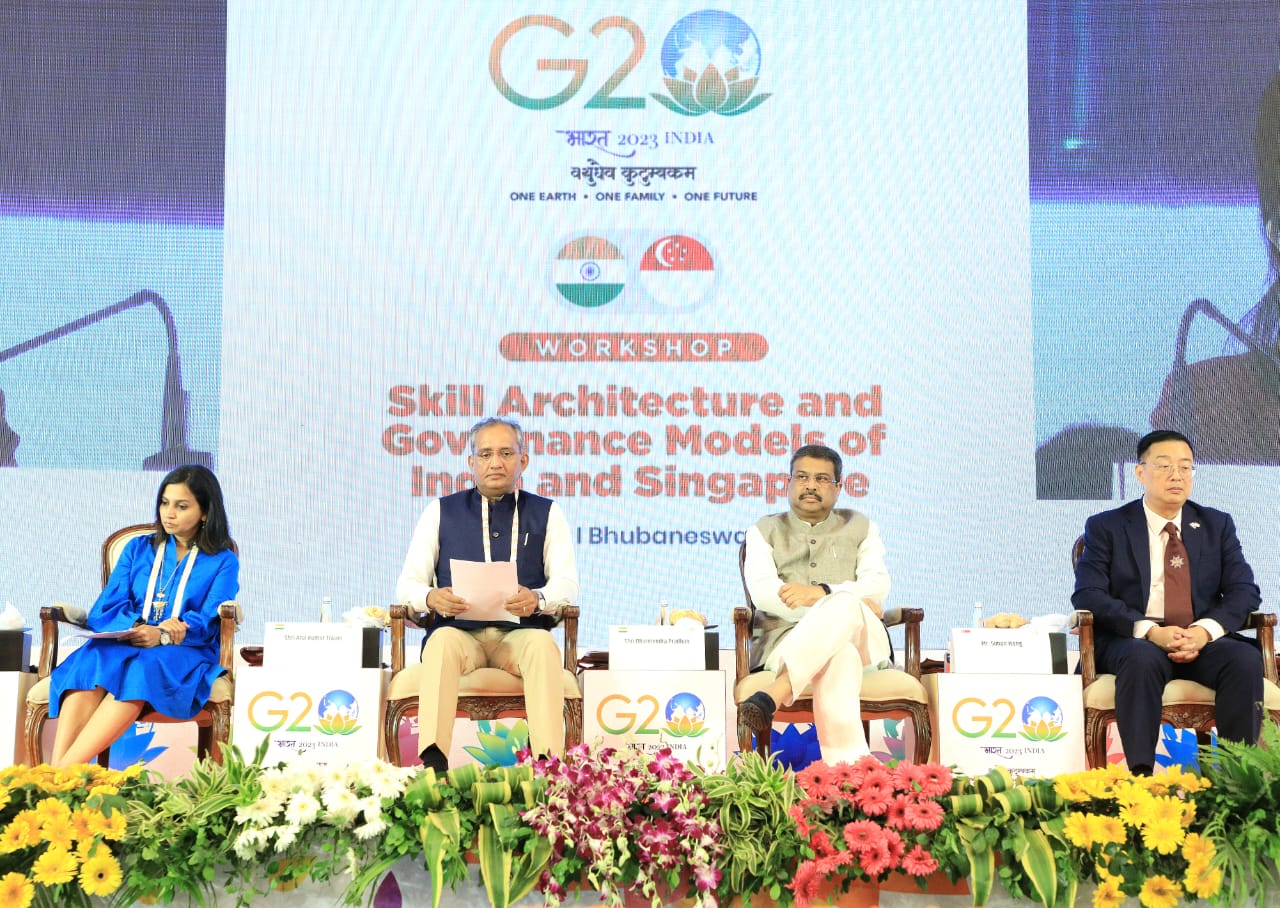
Shri Pradhan stressed that the joint workshop between India Singapore will focus on leveraging the expertise & knowledge of Singapore and facilitate mutual sharing of experiences for addressing obstacles to skilling and further transforming the Indian skills ecosystem. He expressed his happiness that in the context of Future of Work, India and Singapore are engaging holistically to deliberate upon three major aspects:
1) Development of new curriculum for skill
2)Framework for skilling ecosystem in higher education
3) Compulsory apprenticeship and frameworks for lifelong skilling.
Mr. Simon Wong in his address mentioned the close ties that Singapore has with India. He pointed out that Singapore is the first country to establish linkages with UPI through their fast payment system PayNow. Also, few days ago Indian rocket PSLV placed two Singapore satellites into the orbit. He said that there is a huge opportunity to extend this cooperation to the space of skilling. He pointed out Singapore follows a skilling philosophy of leaving no one behind, training for decent jobs and building a confident nation because decent job increases the confidence of the individuals and their families.
The objective of this workshop was threefold. (a) to catalyze exchange of knowledge between India and Singapore, two countries with a rich history of progressive reform in the sphere of education and skilling. The discussions in today’s workshop facilitated learning around best practices and policy responses that enable the development of robust education and skilling ecosystems. (b) The discussions, in turn, also uncovered pathways for collaboration, and c) Finally, workshop served a very important role in breaking what is known as the competency trap. Over time, we get better and better at what we do but that tends to constrain our thinking in certain directions. Therefore, when we need to innovate for a new world, the difficulty is not so much in developing new ideas as in escaping from old ones. In bringing together a very diverse set of stakeholders from two different countries under one roof, this workshop opened our perspectives and thinking on the way forward.
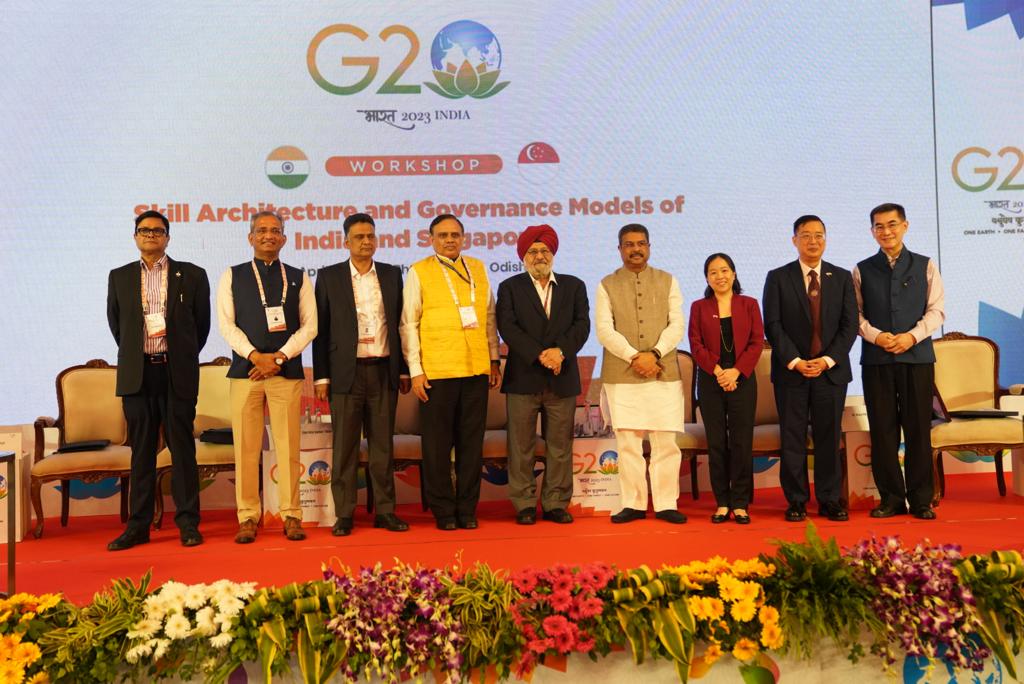
In terms of content, there were three thematic discussions. For vocational education to be widely adopted, it must be respected. That, in turn, is enabled through creation of progression pathways not just in the labour market but also in mainstream school education. Therefore, the first session on integration of skills in the school education curriculum advanced the understanding of how progression pathways in education can be created for vocational education learners. Adoption also requires vocational education to be relevant. The second session, therefore, focused on an agile and resilient TVET ecosystem for creating a future-ready workforce. This discussion advanced the understanding of the different ways in which industry can inform and integrate with the TVET ecosystem to drive superior workforce outcomes for TVET graduates and render them future-ready. Finally, it is fair to say that we live in an incredibly dynamic world. Rapid technological advances like generative AI are transforming the world of work and necessitating a response from education systems. In a recent report for the World Bank, it was found the most substantive impact of AI is not loss of work as is thought but rather, reconfiguration of work so that humans and machines can work together to increase productivity. In such a fast-paced environment, the ability to learn is important but not as important as the ability to learn and unlearn. The third session, therefore, focused on lifelong learning and skill recognition in the context of future of work.


